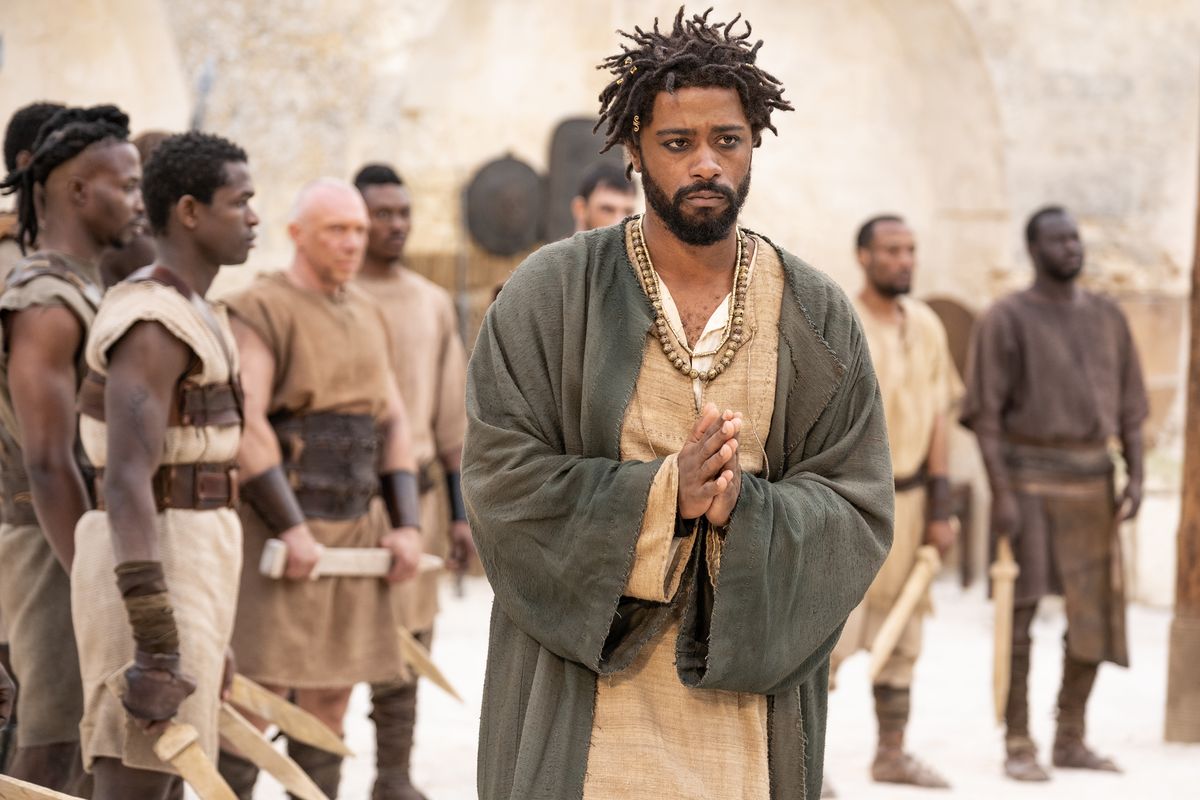Movie Review: ‘The Book of Clarence’ is Biblically inspired film that mixes faith and farce

With “The Book of Clarence,” British musician-turned-filmmaker Jeymes Samuel does for the biblical sword-and-sandal epic what he did for westerns in his feature debut, “The Harder They Fall,” a tongue-in-cheeky cowboy action film featuring a predominantly Black cast and a story loosely based on historical figures. The new film is a shot in the arm for a moribund genre. But as with Samuel’s 2021 Netflix release, which turned the tropes of the oater on their heads, the results are entertaining, sometimes riotously so, yet also decidedly mixed.
“Oh, wow, I haven’t seen that before.” That’s what the director told the Hollywood Reporter he hopes people will say about the story of the titular protagonist, an atheistic “purveyor of ungodly herbs” played by LaKeith Stanfield with an earring and mini-dreads. (It’s a safe assumption that many will say exactly that.) In a prologue video clip introducing “Clarence” before a recent press screening, the writer-director described his new film as providing the “historical context” for contemporary Christian faith while at the same time offering audiences a “wicked dope time” at the movies. And he does both, though not at the same time, and with differing degrees of success.
“Clarence” has the DNA of both “Monty Python’s Life of Brian” and “The Ten Commandments,” alternating between silly satire and self-serious sermonizing, each of which tends to undercut the other.
The story follows Stanfield’s huckster, whom we meet in the middle of a drag race between chariots piloted by our hero, assisted by his sidekick Elijah (RJ Cyler), and Mary Magdalene (Teyana Taylor). After Clarence loses not just the race but the horse and cart, he finds himself in debt to mob boss Jedediah the Terrible (Eric Kofi-Abrefa), a predicament that steers the sad-sack schemer toward new ways to make money.
Plan A: Become the 13th apostle. (Clarence’s pious twin brother Thomas, also played by Stanfield, is one of the dozen disciples of Jesus, played by Nicholas Pinnock as a sanctimonious miracle worker. Apparently, the business of preaching the gospel is lucrative.) When that idea doesn’t pan out, Plan B kicks in: Take a page from the playbook of the Messiah himself and start performing a few magic tricks around town, conning the crowd for shekels, with Elijah as his shill.
It’s a funny enough premise, with standout scenes including an awkward confrontation between Clarence and Jesus’ mother, Mary (Alfre Woodard), over her virginity, with a sheepish Joseph standing silently by.
Along the way, there’s gladiatorial combat mixed in with all the comedy, and a secondary love story between Clarence and Jedediah’s sister (Anna Diop) that incorporates a frivolous dance scene at a first-century disco. “The Book of Clarence” is not for purists or the holier-than-thou, despite a bit of hectoring dialogue about belief vs. knowledge and growth vs. change that Samuel attempts to shoehorn between the jokes.
One of the best gags involves a famous British actor playing a beggar who is somehow mistaken for Jesus. This could lead viewers to think, momentarily, that the story of a brown-skinned Messiah - arguably more accurate than the California-surfer Jesus of Western art history - might segue into “How Jesus Became White.” It’s a throwaway laugh, though, and Samuel quickly returns to his signature blend of lowbrow humor and highfalutin theology.
Whether it works depends less on piety than on taste. Beneath the giddy subversion, there’s a cheerless solemnity - a splash of Mel Gibson’s “The Passion of the Christ,” as it were - that often comes close to curdling the farce. Ultimately, Samuel seems pretty straight-faced in his faith, but whether audiences follow him remains to be seen.